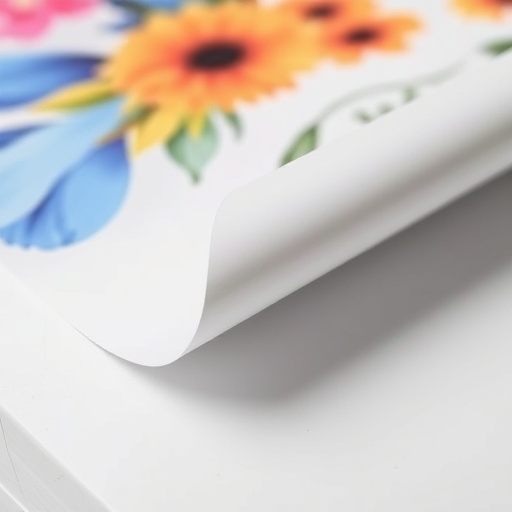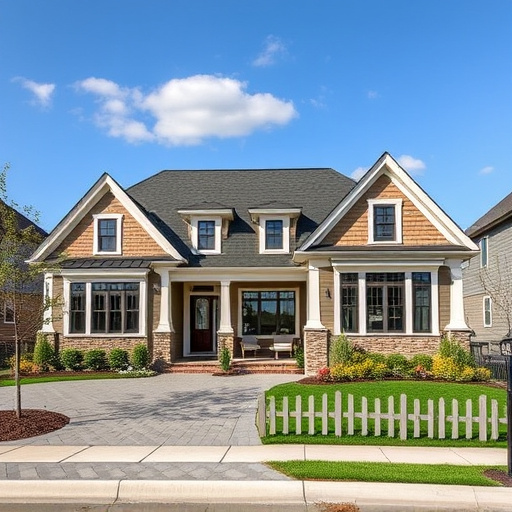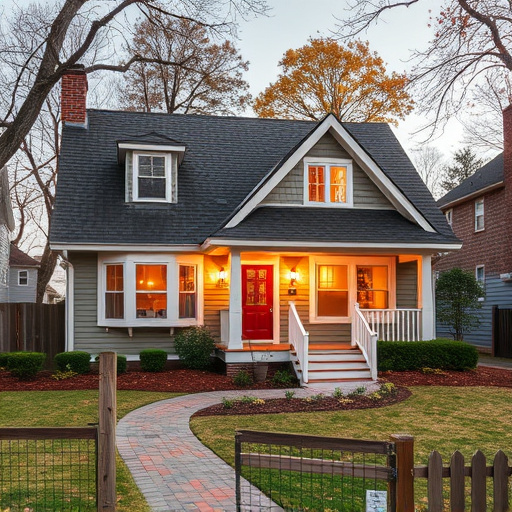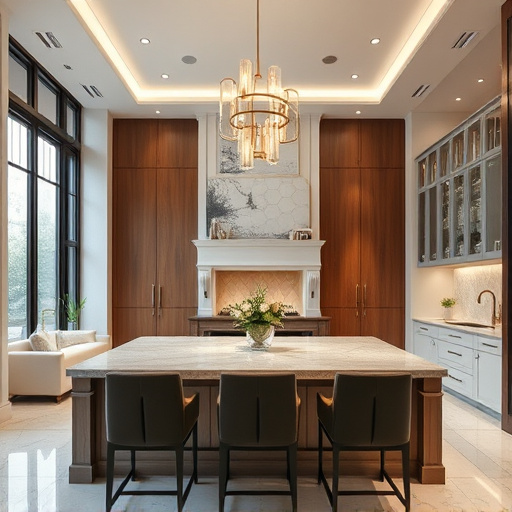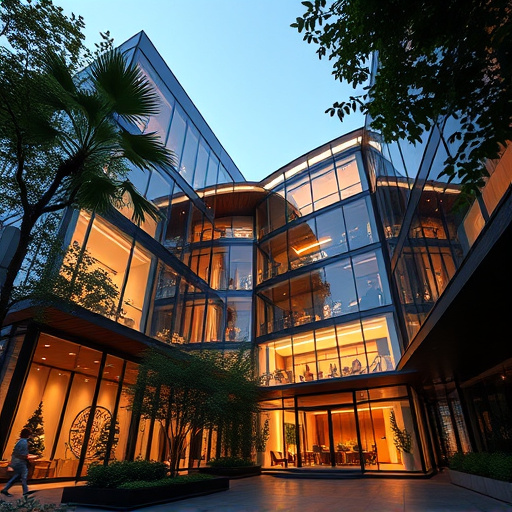Choosing kitchen countertops involves balancing durability, aesthetics, and budget. Natural stone like granite and quartz offer superior longevity and beauty but higher costs and maintenance. Composite materials such as laminate provide affordable, low-maintenance options. Selecting the right material ensures a functional, aesthetically pleasing kitchen that complements home improvement efforts.
Looking for kitchen countertops that can withstand the daily grind? You’ve come to the right place. This comprehensive guide explores durable materials, from granite and quartz to laminate and stainless steel, helping you make an informed choice. We’ll delve into care tips to keep your surfaces looking their best, plus design ideas for merging longevity with style. Discover how to select countertops that not only endure but also elevate your kitchen’s aesthetics.
- Choosing Durable Kitchen Countertop Materials
- – Overview of popular countertop materials and their durability
- – Pros and cons of common choices like granite, quartz, laminate, and stainless steel
Choosing Durable Kitchen Countertop Materials
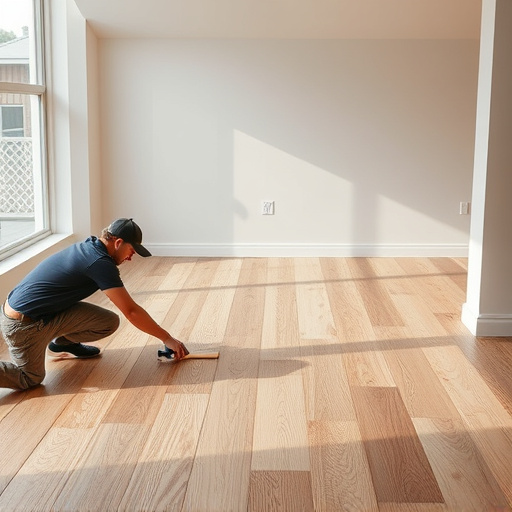
When it comes to kitchen countertops, durability is key. Choosing the right material that can withstand daily use, from preparing meals to cleaning up, is essential for any homeowner. Stone, such as granite and quartz, tops the list due to their natural beauty and longevity. These materials are highly resistant to scratches and stains, making them ideal for busy kitchens. They also offer a range of colors and patterns, allowing you to create a customized work area that reflects your style.
Additionally, composite materials like acrylic or laminate provide an affordable alternative without compromising on durability. While they may not have the same level of natural elegance as stone, these options are easy to maintain and clean, making them perfect for those seeking low-maintenance kitchen renovations. Whether you opt for a timeless classic or a modern design, selecting a countertop material that aligns with your needs and budget will ensure a functional and aesthetically pleasing space for years to come, complementing any home improvement services and customized work.
– Overview of popular countertop materials and their durability
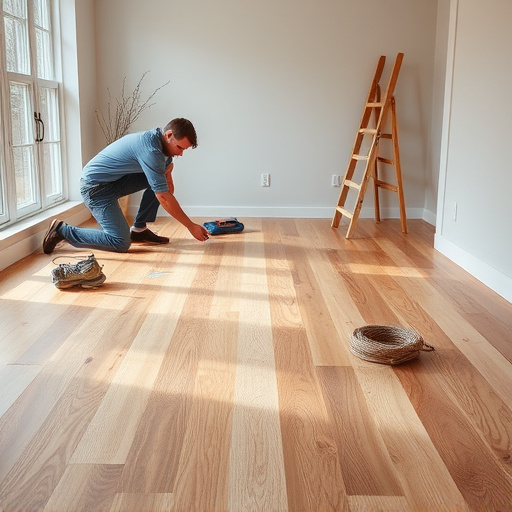
The choice of kitchen countertop materials plays a significant role in determining the durability and overall aesthetic of your space. Popular options include granite, quartz, marble, laminate, and solid wood, each boasting unique properties that influence their longevity under daily use. Granite, renowned for its beauty and strength, is a natural stone that can endure high temperatures and heavy objects, making it an excellent choice for active kitchens. Its non-porous surface also resists stains and bacteria, ensuring easy maintenance.
Quartz, another durable option, offers exceptional resistance to scratches, chips, and cracks, as well as being highly heat-resistant. This makes it a preferred choice for families with young children or those who love to cook at high temperatures. Moreover, quartz countertops are non-porous, making them easy to clean and maintain, requiring only routine wiping and occasional sealing. For a more customized look, laminate and solid wood offer versatility in terms of design while still being cost-effective. However, they may require more maintenance, including regular sealing and polishing, to protect against scratches and water damage, especially compared to the more robust natural stone options.
– Pros and cons of common choices like granite, quartz, laminate, and stainless steel
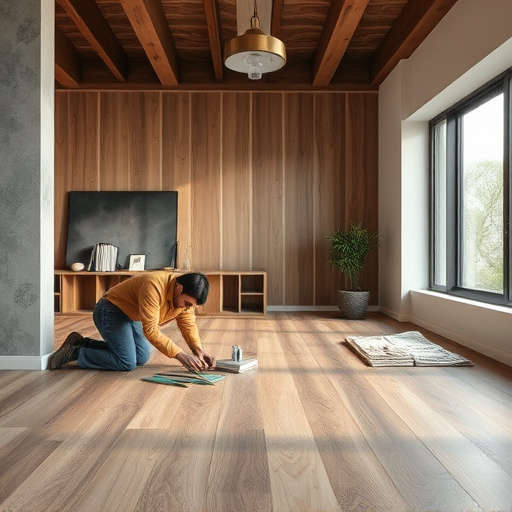
Granite is a popular choice for kitchen countertops due to its natural beauty and durability. It’s highly resistant to scratches, heat, and stains, making it ideal for high-traffic areas. However, granite can be expensive and requires sealing regularly to prevent staining. Additionally, its weight and installation process might not suit those looking for a DIY project or those with limited budgets.
Quartz offers a more affordable alternative while maintaining durability. It’s made from ground minerals and polymer resin, making it scratch-resistant and non-porous, which simplifies cleaning. Unlike granite, quartz doesn’t require sealing. However, its design options are more limited, as it’s typically produced in solid colors or patterns. Laminate countertops are budget-friendly and easy to install, offering a wide range of styles to suit various tastes. Yet, they’re more susceptible to scratches and stains compared to stone options, and they don’t hold up well against heat. Stainless steel is known for its sleek appearance and excellent resistance to corrosion and stains. It’s a durable choice that can enhance the modern look of any kitchen. However, it shows fingerprints easily and might require specialized cleaning methods. Customized work in the form of interior painting or home remodeling can further elevate the aesthetics of your countertops, adding a personalized touch to your space.
When it comes to kitchen countertops that can withstand daily use, choosing durable materials is key. Granite, quartz, and stainless steel offer exceptional strength and low maintenance, while laminate provides an affordable option without sacrificing durability. By considering the pros and cons of each material, you can select the perfect countertop that not only complements your style but also stands the test of time, ensuring a functional and attractive space for years to come.







